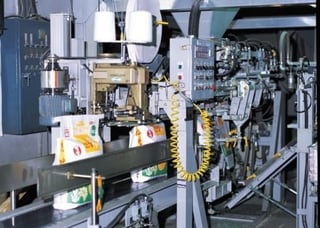
When you're considering filing bankruptcy for your business, of whatever type you select, you have a lot of decisions to make and a lot of information to sort through to make the best choices for your business' potential continuation. But what happens when your business goes bankrupt? What can you expect to happen with your business assets? Will the equipment you need be sold? During the process, an equipment appraiser is typically used to perform a machinery valuation on your business' equipment and will be required to follow strict guidelines and methodologies to ensure the that the process is equitable for all the creditors and the business itself if it is decided to remain in operation. Here are some details to help you along the way.
Filing for bankruptcy: What role will equipment values play?
When it comes to dealing with a bankrupt business, there are a number of different concepts and values that are commonly used in the process when it comes to asset and equipment valuation. Because a bankruptcy requires a court of law, there can be very specific requirements that must be met during the equipment appraisal process to ensure that the process is fair to all involved and the report accurate. There are many different situations where valuation will come into play during a bankruptcy:
- Liquidation is one of the most common types of valuation used in bankruptcy situations, because your creditors will almost always want to be paid in cash rather than in your equipment. Getting a liquidation value appraisal helps the court determine the net recovery that can come from the sale of your business assets.
- Bankruptcy code does allow for other types of valuation, however. Value in use, value in exchange, liquidation value, net realizable value or other standardized methodology may be used if directed by the bankruptcy court. These values can differ based on a wide range of other factors, so it's important to use a certified equipment appraiser with experience in bankruptcies to make sure the advisors in the process provide the right value context.
- Because a court is involved, the machinery appraiser may be required to review prior court cases to determine what the proper type of valuation should be to generate the final report. In particularly complex cases, the guidance of legal counsel may be required to determine which valuation methodology should be used in each unique situation.
- The judge may also have a say in the type of valuation being used in a business bankruptcy case. It's not unheard of for a bankruptcy court judge to require a specific type of valuation if the situation calls for it. This will limit the type of valuation that can be used in that instance.
Facing bankruptcy is a difficult task, but knowing what limitations may be involved in your case or the type of valuation to expect can make the process easier to anticipate. Knowing what to expect as the process goes forward makes it easier to deal with situations as they arise. If you're considering going through a business bankruptcy, you'll want to work with an equipment appraiser who can give you details on what's what with your company.

